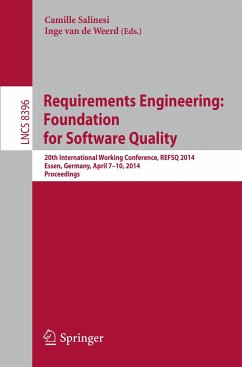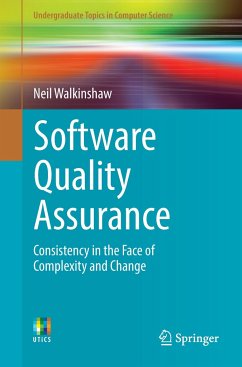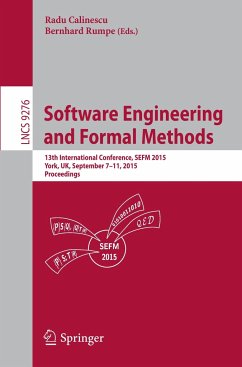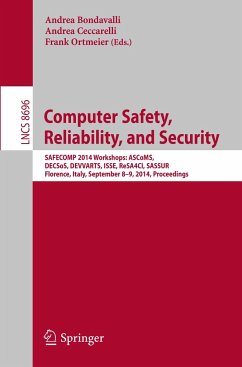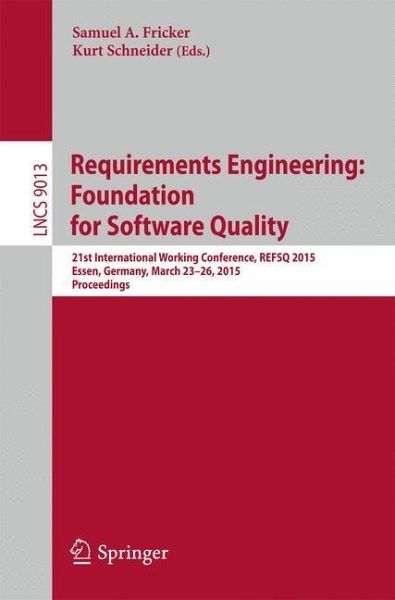
Requirements Engineering: Foundation for Software Quality
21st International Working Conference, REFSQ 2015, Essen, Germany, March 23-26, 2015. Proceedings
Herausgegeben: Fricker, Samuel A.; Schneider, Kurt

PAYBACK Punkte
19 °P sammeln!
This book constitutes the refereed proceedings of the 20th International Working Conference on Requirements Engineering: Foundation for Software Quality, REFSQ 2014, held in Essen, Germany, in April 2013. The 23 papers presented together with 1 keynote were carefully reviewed and selected from 62 submissions. The REFSQ'15 conference is organized as a three-day symposium. The REFSQ'15 has chosen a special conference theme "I heard it first at RefsQ". Two conference days were devoted to presentation and discussion of scientific papers. The two days connect to the conference theme with a keynote,...
This book constitutes the refereed proceedings of the 20th International Working Conference on Requirements Engineering: Foundation for Software Quality, REFSQ 2014, held in Essen, Germany, in April 2013. The 23 papers presented together with 1 keynote were carefully reviewed and selected from 62 submissions. The REFSQ'15 conference is organized as a three-day symposium. The REFSQ'15 has chosen a special conference theme "I heard it first at RefsQ". Two conference days were devoted to presentation and discussion of scientific papers. The two days connect to the conference theme with a keynote, an invited talk and poster presentations. There were two parallel tracks on the third day: the Industry Track and the new Research Methodology Track. REFSQ 2015 seeks reports of novel ideas and techniques that enhance the quality of RE's products and processes, as well as reflections on current research and industrial RE practices.





